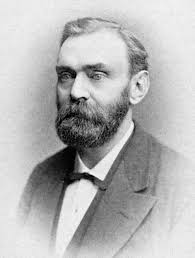The Life and Legacy of Alfred Nobel

Introduction
Alfred Nobel, a name synonymous with innovation and philanthropy, left an indelible mark on the world through both his inventions and the establishment of the Nobel Prizes. Born on October 21, 1833, in Stockholm, Sweden, Nobel came to embody the spirit of progress and the complex moral implications of technological advancement. His inventions, particularly dynamite, transformed industries and altered the landscape of construction and warfare, prompting discussions about the ethical responsibilities that come with such power.
Early Life and Inventions
Nobel was educated in engineering, culminating in his invention of dynamite in 1867. This revolutionary material allowed for safer handling of nitroglycerin, significantly impacting construction, mining, and demolition industries. Despite its benefits, Nobel’s invention raised ethical concerns surrounding its use in warfare, prompting a personal reckoning that would later influence his philanthropic efforts.
The Birth of the Nobel Prizes
In 1888, after reading an obituary that mistakenly attributed his death to his invention of explosives, Nobel was inspired to redefine his legacy. He drafted his will, declaring that the vast majority of his fortune would be allocated to the establishment of the Nobel Prizes, awarded annually to individuals or organisations that provide significant contributions to humanity. The Nobel Prizes now encompass categories such as Physics, Chemistry, Medicine, Literature, and Peace, with the Economics prize added later in 1968 by the Sveriges Riksbank in his honour.
Current Relevance and Significance
Today, the Nobel Prizes represent one of the highest global accolades, celebrating outstanding achievements that often drive humanitarian and scientific progress. The Peace Prize has gained remarkable attention, spotlighting issues like global conflicts, human rights, and climate change, and encouraging ongoing discourse about what it means to contribute to global improvement. The relevance of Nobel’s vision is more pronounced than ever in a world facing multifaceted challenges.
Conclusion
Alfred Nobel’s contributions to science, industry, and society resonate well beyond his lifetime. By establishing the Nobel Prizes, he ensured that his legacy would not only celebrate innovation but also encourage the ethical use of knowledge for the betterment of humanity. As global challenges continue to evolve, the principles behind Nobel’s vision remain vital, inspiring current and future generations to strive for excellence and to consider the broader implications of their achievements. In reflecting on Nobel’s life, we are reminded of the importance of aligning our ambitions with the pursuit of peace and progress.
